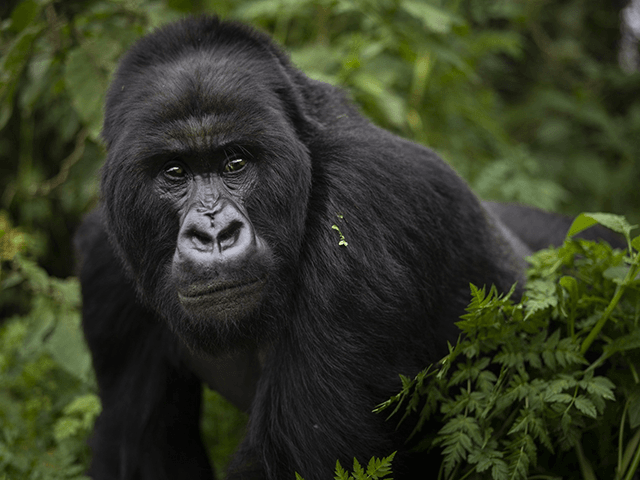Gorillas at Zoo Atlanta have tested positive for coronavirus after apparently contracting the virus from a vaccinated zoo worker.
According to the Atlanta Journal-Constitution, 13 of the zoo’s 20 gorillas have tested positive for coronavirus. The gorillas were exhibiting signs of infection as symptoms included light coughing, runny noses, and losses of appetite among the population.
Samples of the gorillas’ stool, along with nasal and oral tests, were sent from the zoo to the University of Georgia for testing. Upon results, it was discovered the apes presumptively tested positive for the illness. The zoo awaits confirmation of the results from the Veterinary Services Laboratory in Ames, Iowa, where secondary tests are being conducted.
According to Dr. Sam Rivera, who serves as senior director of animal health at Zoo Atlanta, the gorillas most likely contracted the virus from a vaccinated worker. The staffer was asymptomatic, but upon testing, it was revealed she was positive for the virus. Rivera said the worker took appropriate precautions in working with the gorillas by wearing a mask, a face shield, and gloves, but the measures failed to work.
In total, the zoo owns 20 gorillas which are divided into four different troops. At least one member from each of the four troops has exhibited symptoms of the virus.
In order to combat the outbreak, Zoo Atlanta is taking a number of medical precautions with its apes. For one, gorillas at risk of serious complications are being treated with monoclonal antibodies. The zoo has plans to vaccinate all gorillas with the Zoetis vaccine, which was developed for veterinary use. The vaccine was used on the gorillas, orangutans, and bonobos at the San Diego Zoo earlier this year. Zoo Atlanta has already vaccinated its Sumerian tigers, African lions, a Clouded leopard, and both Bornean and Sumatran orangutans.
Among the gorilla population that has been infected is 60-year-old Ozzie, the oldest male gorilla in captivity. Rivera explained Ozzie is exhibiting mild symptoms, but noted, “we don’t feel that we’re out of the woods yet. We’re taking it on a day-by-day basis.”
“The teams are very closely monitoring the affected gorillas and are hopeful they will make a complete recovery,” Dr. Rivera explained in a statement released by the zoo. “They are receiving the best possible care, and we are prepared to provide additional supportive care should it become necessary.”

COMMENTS
Please let us know if you're having issues with commenting.